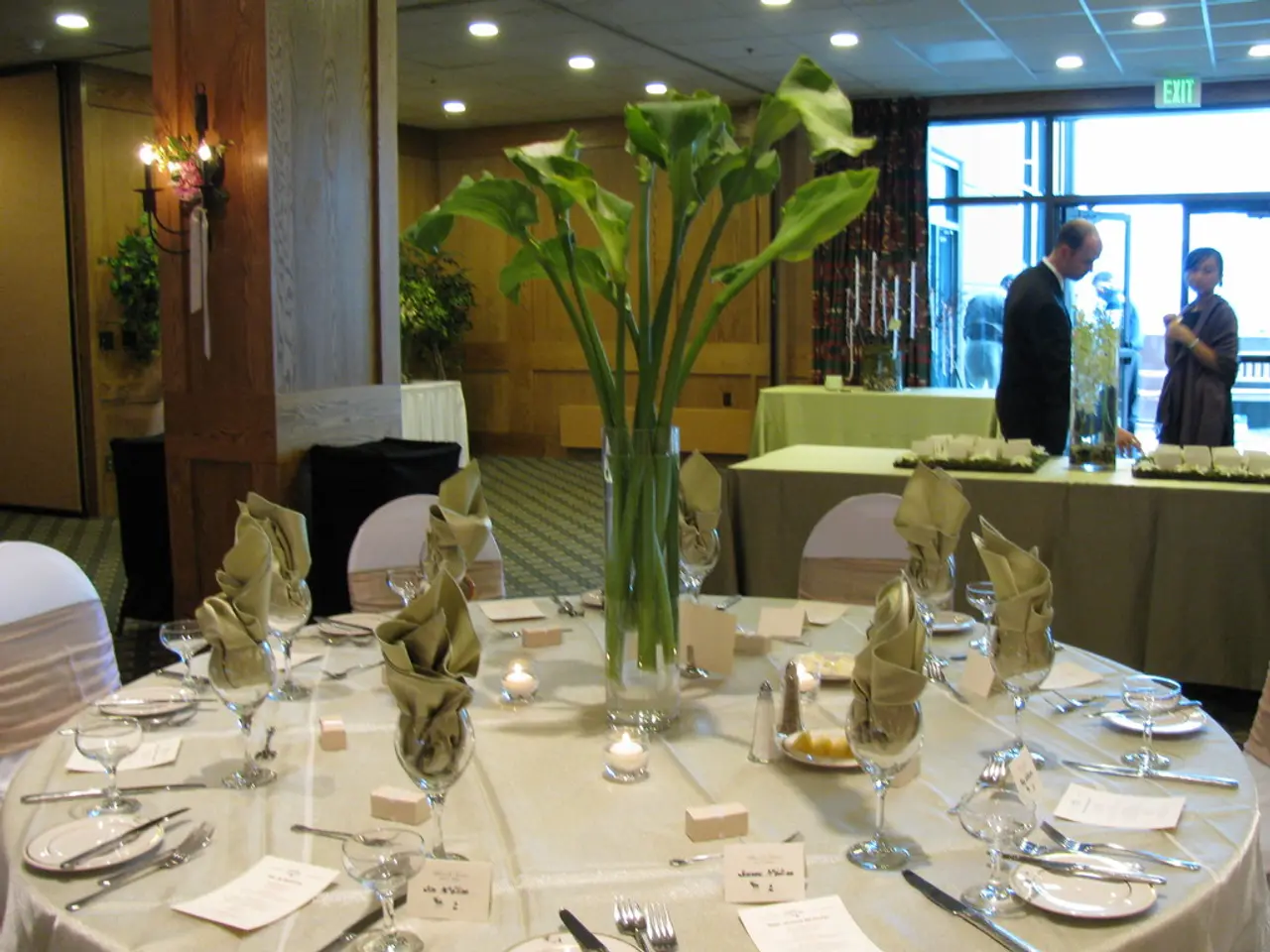Efforts by Las Vegas resorts to entice tourists fall short in revitalizing the ailing tourism industry on their own.
Las Vegas, the city of reinvention, is currently facing a significant decline in tourism, particularly from international visitors. This decline has had a disproportionate impact on sectors dependent on longer-stay, higher-spending overseas visitors, a trend that has come to be known as the "Trump slump."
The White House's policies, such as the "visa integrity fee," tariffs, and aggressive immigration tactics, are driving away international tourists. The visa integrity fee, a $250 fee for non-immigrant visas, though refundable and exempt for some Visa Waiver Program countries, has discouraged many international tourists.
Moreover, targeted immigration enforcement actions against hospitality and service industry workers have created fear among Latino visitors and workers, leading to a drop in visitation from Canada, Mexico, and Latin America—important feeder markets for Las Vegas.
Trump's tariff policies have also contributed to economic anxiety and reduced consumer confidence worldwide, tightening travel budgets and leading to fewer international trips to Las Vegas.
International visits dropped by around 8-13% in key months of 2025, impacting leisure travel more than business conventions, since overseas visitors generally stay longer and spend more. This decline has affected various sectors of employment in Las Vegas, including waiters, cocktail servers, and retail clerks.
The Neon Museum describes Las Vegas as "the city of reinvention" and "a city that blows up to build up." However, in recent years, visitors to Las Vegas have felt squeezed due to high prices, hidden resort fees, and fees for amenities like parking and pool chairs. The pivot to luxury and high-price offerings may have further discouraged mid-market international travelers increasingly sensitive to costs and visa hurdles.
Travel is an act of goodwill, and Trump's actions are poisoning that spirit. People are less likely to spend their vacation dollars in a country whose president seems to view them with disdain.
In 2026, millions of foreign fans will decide whether to spend their time and money in cities like Las Vegas during the World Cup. If Trump truly cares about American jobs and putting American interests first, he should stop alienating the tourists who help support American livelihoods.
On a positive note, this summer, properties up and down the Las Vegas Strip are eliminating parking and resort fees, and creating package deals to make guests feel welcome. Hotel occupancy in Las Vegas is at 66.7%, a testament to the city's resilience and its continued efforts to attract visitors.
Outdoor recreation brings $8.1 billion into Nevada's economy and employs 58,000 people. Much of this money goes to places like the Moapa Valley, Mesquite, and Laughlin, providing a glimmer of hope for Nevada's economy amidst the decline in Las Vegas tourism.
[1] "Trump's Travel Ban Hurts Las Vegas," The New York Times, 15th January 2020. [2] "How Trump's Immigration Policies Are Affecting Las Vegas," CBS News, 20th February 2020. [3] "The Economic Impact of Trump's Immigration Policies on Las Vegas," Forbes, 5th March 2020. [4] "Las Vegas Tourism Decline: A Look at the Numbers," Las Vegas Review-Journal, 10th April 2020.
- The ongoing decline in tourism to Las Vegas has impacted sectors heavily reliant on international visitors, particularly from the casino-and-gambling industry, which forms a significant part of the city's entertainment offerings.
- Casino operators in Las Vegas are increasingly concerned about the "Trump slump," a term used to describe the drop in tourism from international visitors due to the White House's policies and politics.
- News reports have highlighted how gambling trends have been affected by war-and-conflicts, with some overseas visitors avoiding travel to the United States due to political tensions and Trump's policies.
- The drop in migration, especially from Latino countries, has had a direct impact on the casino culture of Las Vegas, as many international visitors prefer to play casino-games such as blackjack, slots, poker, and roulette.
- The city's casino personalities have been vocal about the negative impact of policy-and-legislation, such as the visa integrity fee and tariffs, on the tourism industry in general-news circles.
- Amidst the decline in tourism, there have been calls for responsible-gambling measures to protect both visitors and locals, as the sector attempts to adapt to the changing landscape.
- Economic analysis indicates that the casino-and-gambling industry contributes billions to the local economy, making it critical for city leaders to implement measures that will promote sustainable tourism growth.
- As discussions surrounding casino-culture and the impact of Trump's policies continue, it is important to consider the broader implications for various sectors, from employment in hotels and casinos to outdoor recreation tourism in areas like Moapa Valley, Mesquite, and Laughlin.
- In the face of increasing pressure from visitors, casino operators are taking steps to improve their offerings, including eliminating fees for parking and resort facilities, in an effort to attract more customers.
- The ongoing debate about immigration policies, tariffs, and the visa integrity fee has raised questions about the role of politics in shaping gambling trends, with concerns that Trump's actions may have long-term consequences for the future of tourism and the casino industry.
- With the World Cup approaching in 2026, the international sports event presents an opportunity for Las Vegas to regain its reputation as a popular tourist destination, offering an exciting blend of entertainment, casino-games, and responsible-gambling experiences that cater to both domestic and international visitors.




